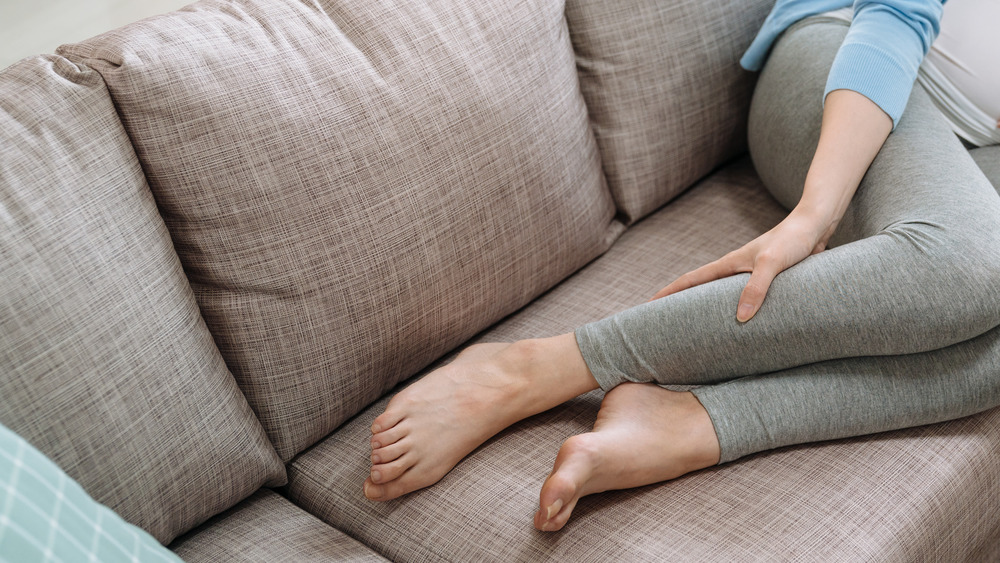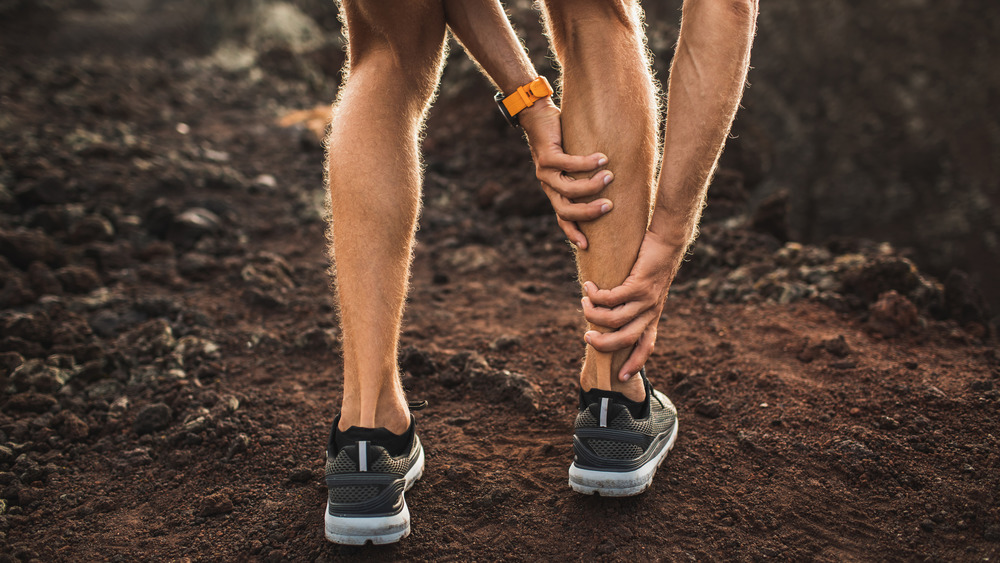This Is What Really Happens When You Get A Charley Horse
Charley horses — those vicious muscle cramps and spasms that come on quickly — are common occurrences for some people. But why do they happen, and what can they tell us about our health? The science around muscle cramping, its causes, and its treatment is surprisingly sparse, and despite the amount of information we have about the human body, scientists haven't quite cracked the code on cramps. In fact, often folk remedies seem to work best: Pickle juice has been studied and proven helpful at relieving cramping, but scientists still don't know exactly why.
A charley horse is slightly different than a standard muscle cramp, as the muscle in question becomes rigid and can't relax (via the Cleveland Clinic). They can be excruciatingly painful, but luckily, they rarely last beyond a few seconds or minutes. However, some severe charley horses can last from a few hours to a day. The Mayo Clinic lists primary reasons for leg cramps, including overuse of a muscle, dehydration, muscle strain, or holding a position for too long. More serious reasons include nerve compression, electrolyte imbalance, and blood flow and supply problems. As you get older, you become more prone to random cramping, but there are other risk factors, like being an athlete, taking certain medications, or being obese (via Healthline).
How do you get rid of a charley horse?
You may be concerned after waking up with a charley horse in one of your legs or foot, but don't panic: 75 percent of leg cramps reportedly happen at night. These sudden cramps often come on at night, typically due to muscle fatigue, though pregnancy, age, and diabetes can also be contributing factors. As long as the cramp subsides and you're able to get back to sleep, it's a normal, albeit inexplicable, phenomenon (via the Cleveland Clinic).
Unfortunately, there aren't many proven ways to make a charley horse go away, but you can ease the pain. If you tend to have nighttime charley horse cramps, consider some light exercise or stretching before bed, and make sure that you hydrate well throughout the day. When a cramp does strike, try to relax and gently stretch it or lightly massage the area. You can also apply a heating pad or an icepack to the area — experiment and see whether hot or cold works best for you. The heat may help the muscle relax, while the cold will ease the pain.
The occasional charley horse is nothing to worry about, but if you find that they are happening frequently, are increasingly painful, or don't dissipate after a few minutes, consult with a medical healthcare professional since it could be a sign of something more serious.


